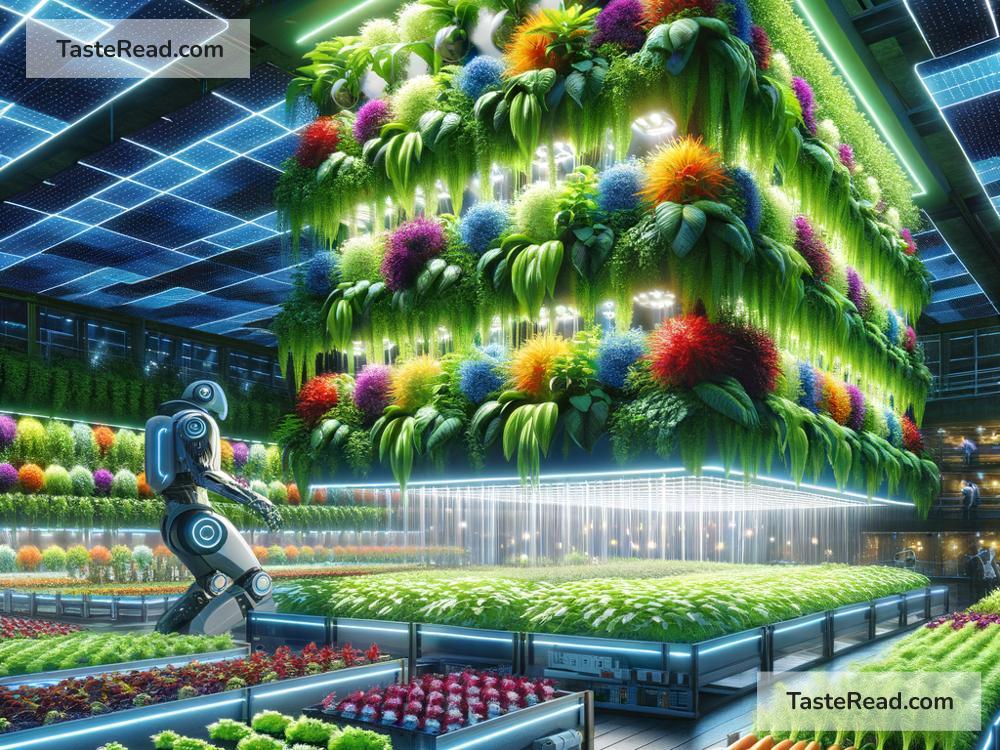The Future of Ethical Food Production
The way we grow, process, and consume food has a big impact not only on our health but also on the environment, animals, and society as a whole. As the world’s population continues to grow, the demand for food is increasing, and so is the need for ethical food production. But what does “ethical food production” really mean, and what does the future hold for it? Let’s explore.
What Is Ethical Food Production?
Ethical food production means growing and preparing food in ways that respect the planet, animals, and people. The goal is to create a system that minimizes harm and promotes fairness and sustainability. This includes:
-
Environmental Responsibility: Making sure farming and food production don’t harm the planet. This means reducing greenhouse gas emissions, protecting water sources, and using land wisely so future generations can still grow food.
-
Animal Welfare: Treating farm animals with care and respect. Ethical farming avoids overcrowding, cruelty, and long-term suffering.
-
Fair Labor Practices: Ensuring that workers involved in food production—from farmers to factory workers—are paid fairly and work in safe conditions.
-
Healthy Food Systems: Promoting natural, nutritious foods and avoiding harmful chemicals or overly processed goods.
Why Is Ethical Food Production Important?
The current global food system faces many challenges, including climate change, polluted waterways, unfair treatment of workers, and factory farming that mistreats animals. If we continue on this path, we might end up with environmental disasters, declining animal populations, and unhealthier lives. That’s why ethical food production is not just an option—it’s essential for the future of our planet and humanity.
The good news? Many people and organizations around the world are already working hard to make food production more ethical. Innovations in farming, technology, and consumer awareness are paving the way for positive change.
Trends Shaping Ethical Food Production
Several important trends and ideas are shaping the future of ethical food production. Let’s take a closer look:
1. Sustainable Farming Practices
Farmers are finding new ways to grow food without harming nature. Techniques like crop rotation (growing different types of crops in the same field) and agroforestry (planting trees alongside crops) help improve soil health and reduce the need for chemical fertilizers and pesticides. Many farms are also adopting renewable energy, such as solar and wind power, to reduce their carbon footprint.
Regenerative agriculture is another growing movement. This method focuses on restoring the natural health of land and increasing biodiversity. Regenerative farms not only grow food but also help fight climate change by storing carbon in the soil.
2. Plant-Based and Lab-Grown Meat
More people around the world are choosing plant-based diets or reducing their meat consumption. This is partly because raising animals for food uses a lot of resources and generates greenhouse gases. Companies are now creating plant-based meat alternatives made from ingredients like peas, soy, and mushrooms to mimic the taste and texture of meat.
Another exciting development is lab-grown meat, also called cultivated meat. Scientists can grow real meat from animal cells in a lab without the need to raise or kill animals. Although lab-grown meat is still new and expensive to produce, it has the potential to revolutionize ethical meat production in the future.
3. Reducing Food Waste
Every year, millions of tons of food are wasted around the world. This wasted food contributes to environmental problems because it often ends up in landfills and produces methane, a greenhouse gas. Ethical food production means finding ways to reduce food waste—both in farms and in households.
Innovations like better food storage, improved supply chains, and apps that connect people to surplus food can help ensure that fewer meals go to waste. Consumers can also play a role by buying only what they need and being creative with leftovers.
4. Technology in Food Production
Technology is playing a big role in making food production more ethical. Robots and drones can help farmers monitor crops and animals, reducing the need for harmful chemicals. Vertical farming—growing food in layers inside buildings—saves space and water and makes it easier to grow fresh produce in urban areas.
Blockchain technology is also improving transparency in the food system. With blockchain, consumers can track where their food comes from and confirm that it was produced ethically.
How Can You Support Ethical Food Production?
The future of ethical food production depends on all of us. Here are some actions you can take to support better food systems:
-
Buy From Ethical Brands: Look for products labeled as organic, fair trade, or cruelty-free. These certifications show that the food was produced responsibly.
-
Choose Local and Seasonal Foods: Buying food grown nearby reduces the environmental cost of transportation and supports local farmers.
-
Reduce Meat and Dairy Consumption: Even small changes, like eating meatless meals a few times a week, can make a difference.
-
Avoid Wasting Food: Plan your meals, store food properly, and use leftovers creatively.
-
Support Policies That Promote Ethical Food: Encourage governments and businesses to invest in sustainable and fair food systems.
Final Thoughts
The future of ethical food production looks promising but requires effort from all sectors—farmers, companies, governments, and consumers. By adopting more sustainable practices and embracing innovative technologies, we can create a food system that is good for our planet, our health, and future generations. Ethical food production is not just a trend; it’s a necessity. Together, we can transform the way we make and eat food for a better tomorrow.


